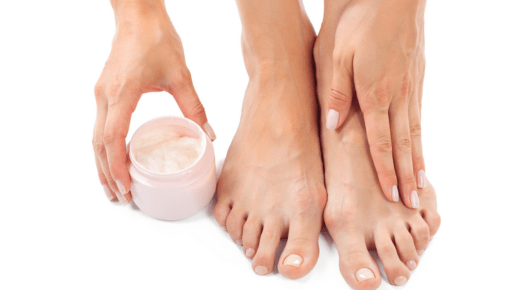
Fungal nail infections can be both frustrating and persistent, often returning even after successful treatment. Though they might seem harmless at first, these infections can lead to discomfort and impact your confidence. That said, it’s essential to adopt effective strategies to minimize the risk of reinfection and maintain healthy nails.
In this blog post, we’ll share with you practical tips to help you prevent fungal infections and support your journey to achieving strong, healthy nails. Let’s dive in!
1. Maintain proper foot hygiene.
One of the simplest yet most effective ways to prevent fungal nail reinfections is by keeping your feet clean and dry. Wash your feet daily with soap and water, focusing on the areas between your toes. Thoroughly dry your feet with a clean towel, taking care to dry between your toes since moisture encourages fungal growth.
2. Choose breathable footwear and socks.
Fungi thrive in warm, moist environments, so it’s important to wear socks and shoes that promote breathability. Opt for socks made from natural fibers like cotton or wool, which allow your feet to breathe better than synthetic materials.
When it comes to shoes, look for those with mesh panels or other breathable materials and avoid wearing the same pair two days in a row. Instead, let them air out to reduce moisture levels.
3. Regularly trim and care for your nails.
To maintain healthy nails, trim them straight across to prevent ingrown nails, and be sure to file down any thickened or rough areas gently. This will create a smooth edge and promote overall nail health. Moreover, avoid cutting your nails too short to protect the nail bed, as damage could provide an entry point for fungi.
4. Use antifungal products.
Consider using antifungal sprays or powders inside your socks and shoes regularly, especially if you have a history of infections. These products help establish an inhospitable environment for fungi, significantly reducing the chance of reinfection. There are also antifungal creams and ointments available that can be applied directly to your nails, acting as an additional line of defense.
5. Do not share personal items.
To prevent the spread of fungal infections, refrain from sharing personal items such as nail clippers, files, towels, or footwear with others. Likewise, avoid borrowing these items from friends or family members, regardless of whether they are experiencing an infection, as fungal spores can linger on surfaces.
6. Protect your feet in public areas.
Public areas such as swimming pools, locker rooms, and showers are known breeding grounds for fungi due to the warm and humid environments that promote their growth. Wearing protective footwear like flip-flops or shower shoes helps shield your feet from direct contact with potentially contaminated surfaces, lowering your chances of reinfection.
7. Keep your immune system healthy.
A healthy immune system naturally fends off infections, including fungal ones. Support your immune health by maintaining a balanced diet rich in vitamins, minerals, and antioxidants, which help boost immune function. Staying hydrated is equally important, as water aids in the circulation of immune cells and the elimination of toxins. Moreover, getting adequate sleep—aiming for seven to nine hours every night—allows your body to repair and regenerate, strengthening your immune response.
8. Seek medical advice when needed.
If you notice symptoms of a fungal infection returning, it’s essential to consult a healthcare professional or foot care center in your area, such as Advanced Foot Clinic, for fungal nail treatments. Remember that early intervention prevents the infection from worsening and spreading. Your doctor may recommend prescription-strength treatments that can be more effective in managing reinfections compared to over-the-counter options.
Incorporating these practical measures into your daily routine significantly reduces the risk of fungal nail reinfections. By practicing proper foot hygiene, selecting breathable footwear, trimming your nails regularly, and protecting your feet in public spaces, you create a hostile environment for fungi.
Additionally, supporting your immune system and reaching out to healthcare professionals when necessary are crucial elements in preventing reinfections. With these steps, you’ll be better equipped to maintain healthy, fungus-free nails.



